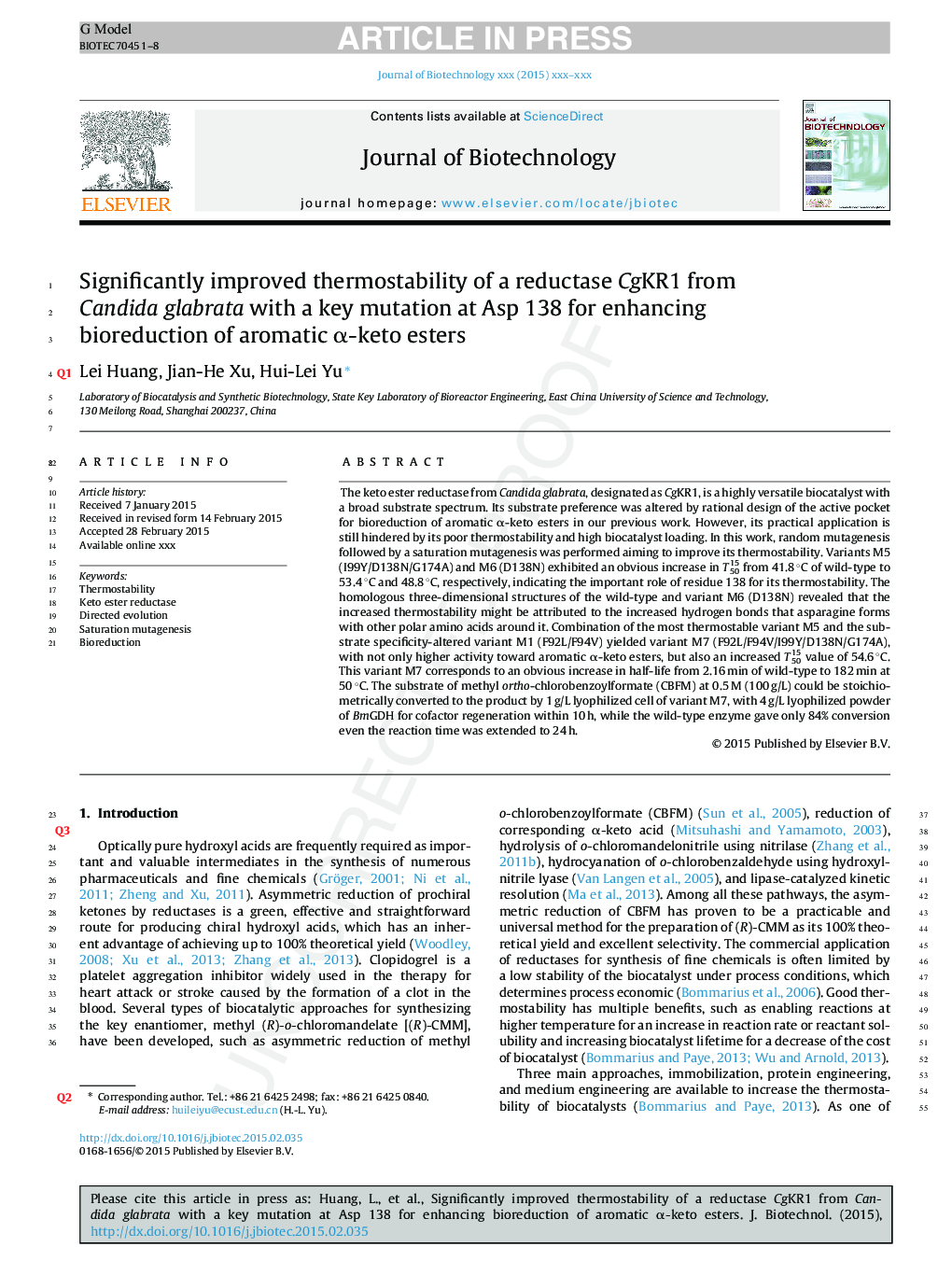| کد مقاله | کد نشریه | سال انتشار | مقاله انگلیسی | نسخه تمام متن |
|---|---|---|---|---|
| 6491142 | 43391 | 2015 | 8 صفحه PDF | دانلود رایگان |
عنوان انگلیسی مقاله ISI
Significantly improved thermostability of a reductase CgKR1 from Candida glabrata with a key mutation at Asp 138 for enhancing bioreduction of aromatic α-keto esters
دانلود مقاله + سفارش ترجمه
دانلود مقاله ISI انگلیسی
رایگان برای ایرانیان
کلمات کلیدی
موضوعات مرتبط
مهندسی و علوم پایه
مهندسی شیمی
بیو مهندسی (مهندسی زیستی)
پیش نمایش صفحه اول مقاله

چکیده انگلیسی
The keto ester reductase from Candida glabrata, designated as CgKR1, is a highly versatile biocatalyst with a broad substrate spectrum. Its substrate preference was altered by rational design of the active pocket for bioreduction of aromatic α-keto esters in our previous work. However, its practical application is still hindered by its poor thermostability and high biocatalyst loading. In this work, random mutagenesis followed by a saturation mutagenesis was performed aiming to improve its thermostability. Variants M5 (I99Y/D138N/G174A) and M6 (D138N) exhibited an obvious increase in T5015 from 41.8 °C of wild-type to 53.4 °C and 48.8 °C, respectively, indicating the important role of residue 138 for its thermostability. The homologous three-dimensional structures of the wild-type and variant M6 (D138N) revealed that the increased thermostability might be attributed to the increased hydrogen bonds that asparagine forms with other polar amino acids around it. Combination of the most thermostable variant M5 and the substrate specificity-altered variant M1 (F92L/F94V) yielded variant M7 (F92L/F94V/I99Y/D138N/G174A), with not only higher activity toward aromatic α-keto esters, but also an increased T5015 value of 54.6 °C. This variant M7 corresponds to an obvious increase in half-life from 2.16 min of wild-type to 182 min at 50 °C. The substrate of methyl ortho-chlorobenzoylformate (CBFM) at 0.5 M (100 g/L) could be stoichiometrically converted to the product by 1 g/L lyophilized cell of variant M7, with 4 g/L lyophilized powder of BmGDH for cofactor regeneration within 10 h, while the wild-type enzyme gave only 84% conversion even the reaction time was extended to 24 h.
ناشر
Database: Elsevier - ScienceDirect (ساینس دایرکت)
Journal: Journal of Biotechnology - Volume 203, 10 June 2015, Pages 54-61
Journal: Journal of Biotechnology - Volume 203, 10 June 2015, Pages 54-61
نویسندگان
Lei Huang, Jian-He Xu, Hui-Lei Yu,